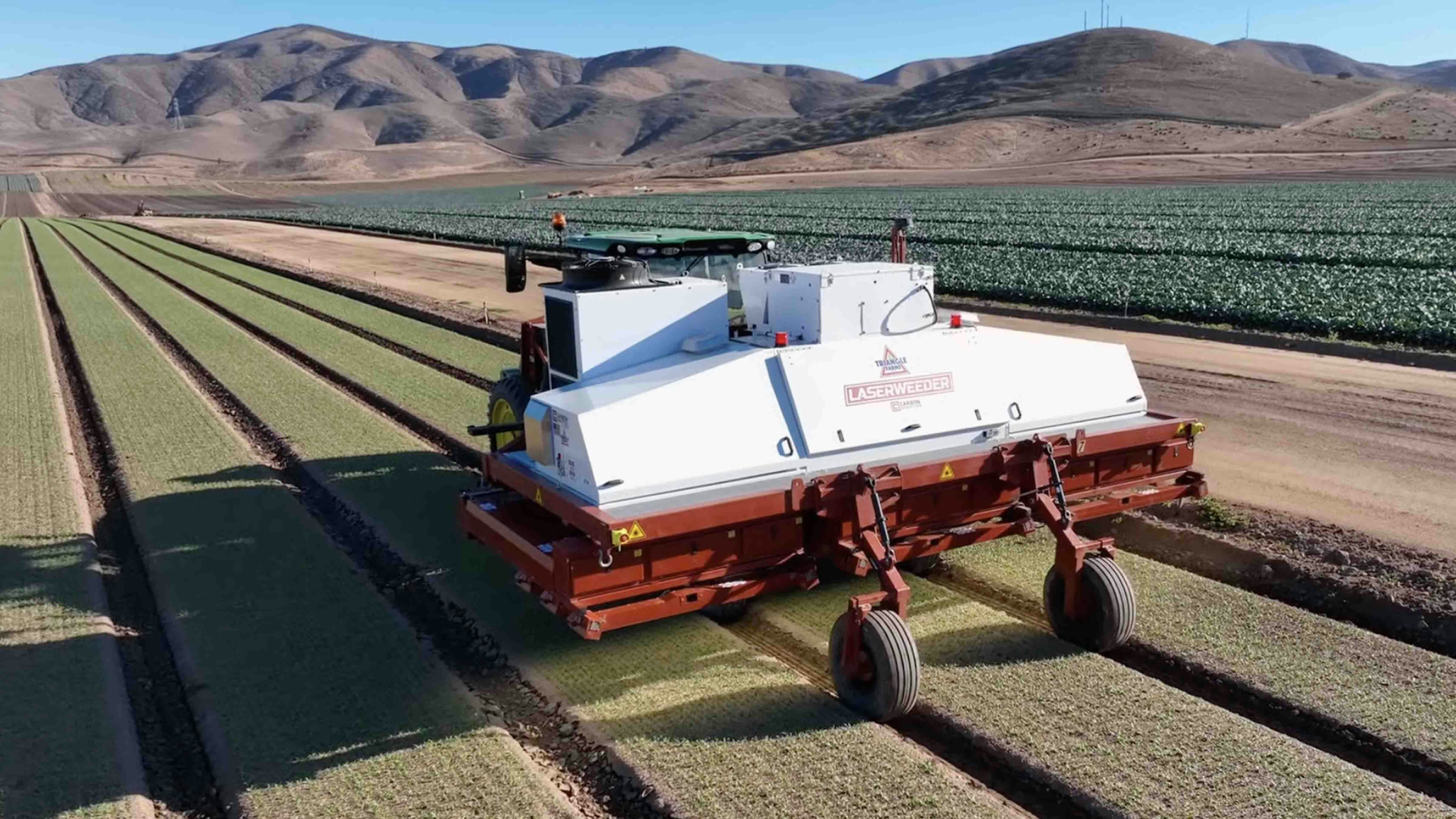Technology developed by defense contractors to spy on America's foes is now being put to work to vaporize weeds on farms in the Pacific Northwest.
The new AI-powered LaserWeeder uses lasers and robotics to kill weeds with impressive efficiency. Through the use of what they call “death rays,” the machine can weed up to 2 acres per hour and eliminate up to 5,000 weeds per minute, or up to 300,000 weeds an hour.
That can be a big cost savings for farmers. Up to 80% savings for weed control, the company says.
“The LaserWeeder does the equivalent work of about 70 people,” said Carbon Robotics CEO and founder Paul Mikesell.
How It Works
Mikesell said the lasers disrupt the cellular cycle within the weed with heat energy.
While demonstrating the machine to NBC News, Mikesell explained that dozens of servers on the vehicle are programmed to recognize 80 crops and 40 types of weeds.
“This machine has more computing power than 24 Teslas,” he said. “It’s essentially a mobile data center.”
Farmers have a choice between a model that pulls behind a tractor and an autonomous model that travels across a farm field under its own power. The robot recognizes and passes over the crop while it nukes every weed in its path with a laser.
Demand for a new robotic weed zapper that uses artificial intelligence and lasers developed by Carbon Robotics of Seattle, Washington, is said to be brisk. According to recent media reports, they sold out of all their 2022 and 2023 models and are taking orders for 2024 and beyond.
Will It Work In Wyoming?
So far, the farms where the LaserWeeder is in service produce high-value row crops, like onions, carrots and potatoes.
Brett Moline, director of public and governmental affairs for the Wyoming Farm Bureau, said this new technology is exciting for agriculture, but he's uncertain how applicable it will be for Wyoming farmers.
"It's definitely exciting to see that this technology is being applied to agriculture and I applaud this company for developing it," Moline said. "It would be a huge benefit if it's affordable."
Carbon Robotics has chosen not to release its pricing structure for the LaserWeeder. But according to media reports, it's in the same price range as a new mid-sized tractor, or about $50,000.
"It looks neat, I'd love to see it in action," Moline added. "But the margins in farming are so thin right now it's tough to justify more investment.”
Sugar Beets
Sugar Beets would probably be the first Wyoming crop the new technology would be adapted for, Moline said.
Most sugar beets are now planted Roundup ready, meaning the plants can withstand the application of Roundup, a broad-spectrum herbicide. It kills the weeds but does not damage the sugar beet plants — an advantage that farmers pay extra for in technology fees.
Roundup ready alfalfa is also popular, and Moline said if the machine can learn to pick through a recently planted stand of alfalfa and kill the weeds, it could increase alfalfa yields and bring more money back to the farm.
"One of things about adapting new technology is a lot of times at the beginning it's not cost effective," he said. "But as they go on and fine tune it more it becomes more practical. It makes me wonder how quickly it will become affordable."
According to Carbon Robotics, traditional chemicals used by farmers deteriorate soil health and are tied to health problems in humans and other mammals. "A laser-powered, autonomous weed management solution reduces or eliminates farmers' needs for herbicides," the company stated.
Test It First
Moline said he'd like to see it tested by the University of Wyoming on its research farms first.
"The university experiment stations can try it out, they don't have the same amount of risk," Moline said. "What if a farmer programs it wrong and it takes out the crop but leaves the weeds? That could be a disaster."
Moline also questioned whether it will work on perennial weeds like thistles, which Wyoming has plenty of. Further, when a farmer rotates a field out of alfalfa into a new crop, like wheat, alfalfa becomes a weed, and alfalfa with its deep perennial roots is a tough weed to kill.
He said herbicides, while expensive, will kill a plant down into its roots whereas a weed zapper appears to only be effective on the portion of a weed that is above ground level. He has seen research that used a propane torch to kill weeds and its weakness was that it didn't kill the roots.
"If you can keep a weed from going to seed that's a lot of the battle," Moline said. "If you can stun it enough that it can't go to seed it may not eliminate the problem, but it can reduce it enough to get a crop established.”
Jimmy Orr can be reached at jimmy@cowboystatedaily.com.





